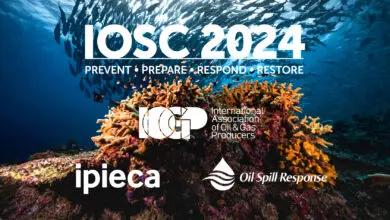
Whilst addressing the public health emergency posed by the Coronavirus pandemic it is vital that the important role played by the offshore energy sector continues with minimal disruption.
The security of supply in all forms of hydrocarbon and renewable energy sources remains critical for immediate societal needs and to ensure that as restrictions on work and travel ease supply can meet the increase in demand.
IOGP has been addressing this issue with a dual approach.
First, the Association participated in a UN Global Compact project to keep ocean-related supply chains moving. Its report, Imminent threats to the integrity of global supply chains has now been presented at the most senior levels within the UN. In addition to seafarers, the report includes offshore workers in the energy sector as “key workers”.
Second, a letter issued by the United Nations International Maritime Organization (IMO) on 27 March 2020 provided a list of recommendations for governments and relevant national authorities to facilitate maritime trade during the COVID-19 pandemic. It appealed to a practical and pragmatic approach to issues like crew changeovers, resupply, repairs, survey and certification and licensing of seafarers. One IMO recommendation was to designate professional seafarers and marine personnel, regardless of nationality when in their jurisdiction, as “key workers” providing an essential service. However, their recommendations were not applicable for offshore energy sector personnel, and their definition of ‘seafarer’ or ‘marine personnel’ did not include such industrial personnel.
IOGP’s Safety Director, Olav Skar, has been working collectively with the International Association of Drilling Contractors (IADC), International Association of Geophysical Contractors (IAGC), International Maritime Contractors Association (IMCA), and the International Support Vessel Owner’s Association (ISOA) in establishing a constructive dialogue with UN authorities to facilitate Member companies to effect crew changes under UN jurisdiction, while recognizing the need to manage the risks posed by COVID-19, through the implementation of agreed pre-travel and arrival protocols.
Consequently, IOGP, IADC, IAGC, IMCA and ISOA have developed jointly a set of recommendations that are specifically addressing offshore energy sector personnel, based on those contained in the IMO letter. These now include recognition of their role as ‘key workers’, receiving the same consideration as seafarers and marine personnel when transiting to and from their places of work. Following discussions with IMO these additional recommendations are now included as part of its 4202 Circular Letters.
“These are good examples where reaching out to both UN and other trade associations has shown the benefits of working together towards the same goal, combining knowledge, skills and experiences for a common good,” said Wafik Beydoun, IOGP Americas Director.
“We believe it contributes to continuity of supply, to maintain the safety and integrity imperatives in our global operations and -most importantly- will open up for both seafarers and energy related key workers to get home to their families.”



